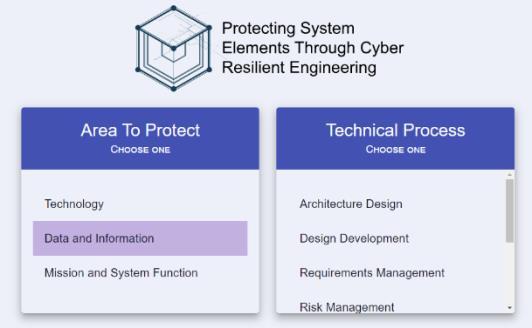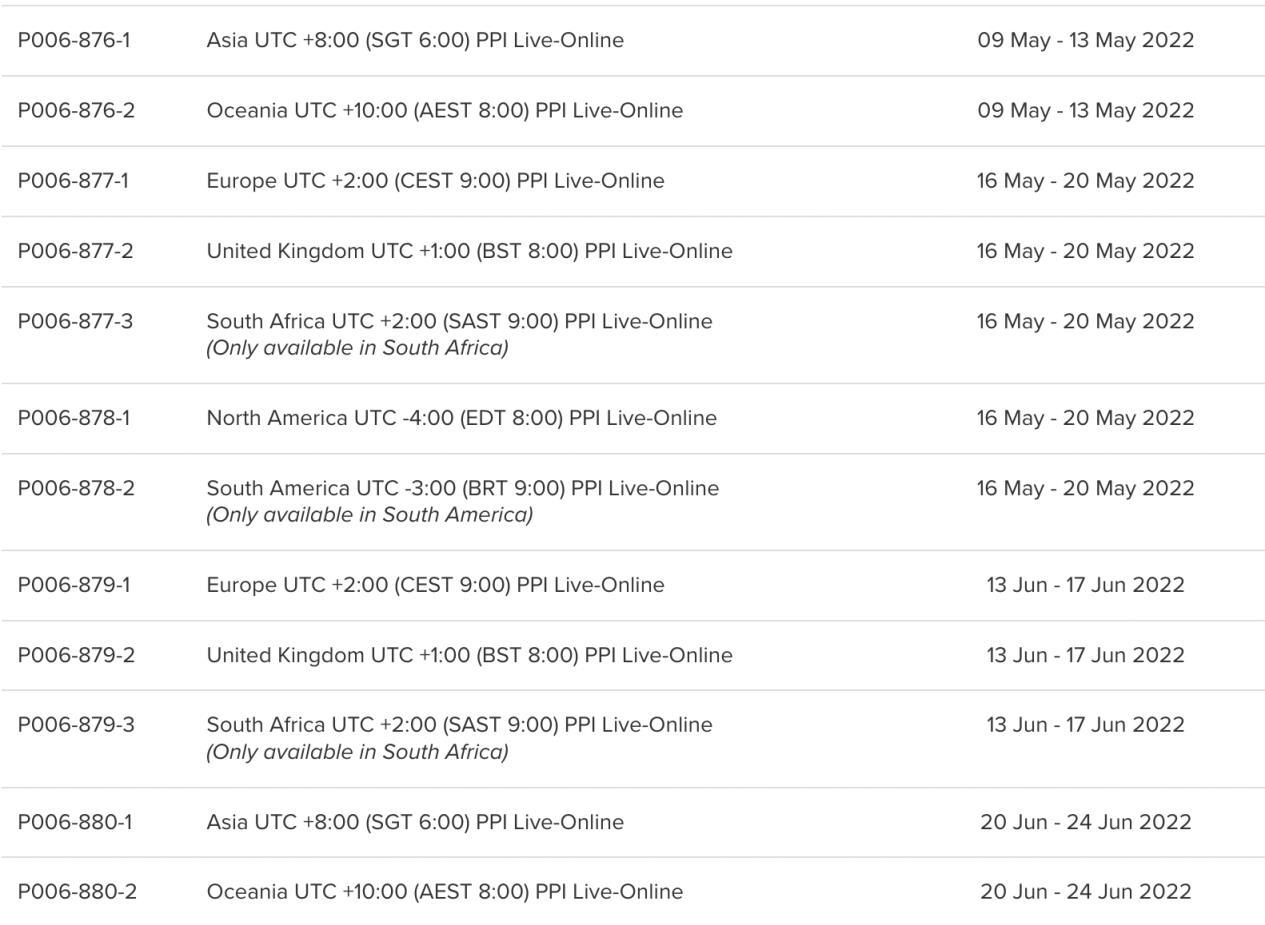
7 minute read
SYSTEMS ENGINEERING RESOURCES
SYSTEMS ENGINEERING RESOURCES SYSTEMS ENGINEERING RESOURCES
Useful artifacts to improve your SE effectiveness
Advertisement
DE, DE and More DE
By PPI’s Robert Halligan FIE Aust CPEng IntPE(Aus)
Indications are that engineering is in the early stages of a Digital Engineering (DE) revolution. Similar to other sources, PPI defines Digital Engineering as a transdisciplinary integrated approach to engineering that creates and uses computerreadable models and other digital data in the conduct and support of systemrelated activities throughout the lifecycle of a system. This emerging DE revolution is reflected in the devotion to DE of the entire March 2022 edition (Volume 25, No. 1) of the INCOSE systems engineering practitioners magazine, INSIGHT. The March 2022 INSIGHT articles are:
1. On the Road with Digital Engineering
The authors provide a historical perspective of how the digital engineering concept evolved in the
United States Office of the Under Secretary of Defense for Research and Engineering (OUSD (R&E)), leading to launch in 2018 of its strategy to introduce digital engineering. Insights are offered on the lessons learned.
2. Digital Engineering Measures: Research and Guidance
This article describes research conducted by the Systems Engineering Research Center (SERC) in collaboration with a government/industry Digital Engineering Measures Working Group to create the first formal measurement framework for digital transformation. The authors describe the research, formation of a causal measurement model, and initial specification of candidate measures.
3. Systems Modeling Language (SysML v2) Support for Digital Engineering
This article contains much valuable information on SysML v2 that we have not seen in print before.
4. Being Digital: Why Addressing Culture and Creating a Digital Mindset are Critical to Successful
Transformation
The paper stresses the importance in digital transformation of cultural change occurring in synchrony with the inherent technological changes.
5. Constructing an Authoritative Source of Truth in a Changing Information Landscape
This article describes many non-obvious issues including those related to requirements, best practices, and available tool capabilities in building and maintaining an Authoritative Source of
Truth (ASoT), an ASoT being a fundamental ingredient of a Digital Thread implementation within
Digital Engineering.
6. Creating the Digital Thread
The author describes approaches to creating the digital thread, including detailed explanations of many types of trace links and their properties. An example digital thread well supports the descriptions.
7. Distributed Cross-Domain Link Creation for Flexible Data Integration and Manageable Data
Interoperability Standards
The author offers a strategy described as providing a more flexible, user-friendly approach than contemporary standardization efforts such as SysML v2 and ISO 10303-243:2021 - MoSSEC for engineers to specify cross-domain links between data in different application and technology domains of engineering. The application and technology domain-independent principles and tools of systems engineering, in the view of PPI, belie the claimed benefits of the approach; the reviewer for one would much rather work in a sound, easy-to-use language such as SysML v2 than in various languages specific to application and technology domains. PPI also believes that the former approach is much more conducive to team learning and sound, integrative engineering practices being used within a team.
8. Realizing the Value Promise of Digital Engineering: Planning, Implementing, and Evolving the Ecosystem
This article summarizes an aid to analyzing and understanding, planning, implementation, and ongoing improvement of what is described as the Innovation Ecosystem or its components, based on a configurable model-based formal pattern created by the INCOSE MBSE Patterns Working
Group.
9. Digital Twin: Reference Model, Realizations, and Recommendations
Members of the American Institute of Aeronautics and Astronautics (AIAA) Digital Engineering
Integration Committee (DEIC) address the development of standardized methodologies to realize the full potential of digital twins and increase their adoption across a wider range of disciplines and applications.
10. Versatile Test Reactor Open Digital Engineering Ecosystem
This paper provides an interesting case study in the use of digital engineering principles to reduce risk and cost and improve schedule in the design of a 300-MW sodium-cooled fast nuclear reactor.
11. Digital Engineering Measures Correlated to Digital Engineering Lessons Learned from Systems
Engineering Transformation Pilot
This novel article describes digital engineering success measures (DESMs) and their correlation with results observed during a pilot that applied digital engineering methods and tools using an authoritative source of truth (ASoT). The pilot correlated ratings from 17 lessons learned categories to 22 DESMs grouped into four metrics categories.
12. Acquirer Driven Digital Engineering Transformation.
The authors advocate the adoption of digital engineering practices by acquisition agencies.
INCOSE members may access INSIGHT Volume 25, No. 1 through the Wiley Online Library or INCOSE Connect.
New INCOSE Products Released
INCOSE has released two new products, available to INCOSE members and non-members, through the INCOSE Connect.
The Needs, Requirements, Verification, Validation Lifecycle Manual (NRVVLM), published in January, 2022, presents systems engineering lifecycle concepts from the perspective of needs, requirements, verification, and validation (NRVV) definition and management across the system lifecycle. Acquire the manual here. (free for INCOSE members).
Systems Engineering Practices for Small and Medium Enterprises may be purchased here. (INCOSE members receive a 50% discount).
Useful artifacts to improve your SE effectiveness
Object Management Group – March 2022 Technical Meeting Resource Hub
The Object Management Group (OMG) standards development organization conducts quarterly technical meetings to make progress on and take official actions concerning various standards. OMG has set up a Technical Meeting Resource Hub to capture the results of the 25

March Technical Meeting.
Meeting content has been captured for the following groups:
Platform Task Forces: • Analysis & Design Platform Task Force • Architecture-Driven Modernization Task Force • Artificial Intelligence Platform Task Force • Middleware and Related Services Platform Task Force • System Assurance Platform Task Force
Platform Special Interest Groups: • Blockchain Platform SIG • Data Distribution Service SIG • Ontology Platform SIG
Domain Task Forces: • Business Modeling & Integration (BMI) Domain Task Force • C4I Domain Task Force • Government Information Sharing and Services Domain Task Force • Manufacturing Technology and Industrial Systems (ManTIS) Domain Task Force • Retail Domain Task Force • Robotics Domain Task Force • Space Domain Task Force
Domain Special Interest Groups: • Systems Engineering Domain SIG
In addition to providing an overview of the issues addressed and results (decisions made) by the various groups, the links above provide contact information (group emails & URLs) through which additional information may be available. Given the impact of standards on both engineering processes and solution designs, SyEN readers are encouraged to stay current on developments in their areas of interest.
Updated Cyber Resilient Weapon Systems Body of Knowledge (BoK)
In order to better address the increasing threat of cyberattacks and cyber warfare, the U.S. DoD has developed a curated collection of specialized knowledge designed to advance the engineering of cyber resilient weapon systems. The updated Cyber Resilient Weapon Systems Body of Knowledge (CRWS-BoK) portal was released as Version 1.3 in February 2022.
The CRWS-BoK provides resources to protect system elements through cyber resilient engineering organized under and searchable across Areas to Protect (Technology, Data and Information, Mission and System Function) and Technical Process (Architecture Design, Design Development, Requirements Management, Risk Management, Stakeholder Requirements, System Analysis and Verification). The portal includes links to glossaries of cyber resilience and defense terminology.
Congratulations to Melinda Reed, the Director of Resilient Systems, and the team from the Office of the Under Secretary of Defense for Research and Engineering (OUSD(R&E)) Office of Strategic Technology Protection Exploitation (STP&E) for completing this important work. Ms. Reed’s 15 June SERCTALK on Secure Cyber Resilient Engineering (SCRE) has been addressed earlier in this SyEN edition. Register here.


Upcoming PPI Live-Online™ Systems Engineering Five Day Courses
Click here to view the full schedule or register for an upcoming course.

Spotlight: PPI Systems Engineering Five Day Course// North and South America 16-20 May 2022
PPI’s 5-Day Systems Engineering Course is an excellent opportunity for those wanting to master new techniques to enhance their project outcomes, reduce rework and advance their professional development. This is not your typical systems engineering training; participants have informed us how this course changes careers and companies.
This highly practical course, which has previously trained 11,600 students from 38 countries, is designed for every practising engineer and engineering manager, regardless of job title, application domain, or technology orientation. Whether you are a 40-year experienced principal engineer or a recent graduate, if you do not agree that you learnt new and valuable things by participating in the training, we will refund your course fee, no questions asked. This course will be taught online in the America’s over 16 - 20 May 2022 by PPI’s John Fitch.

